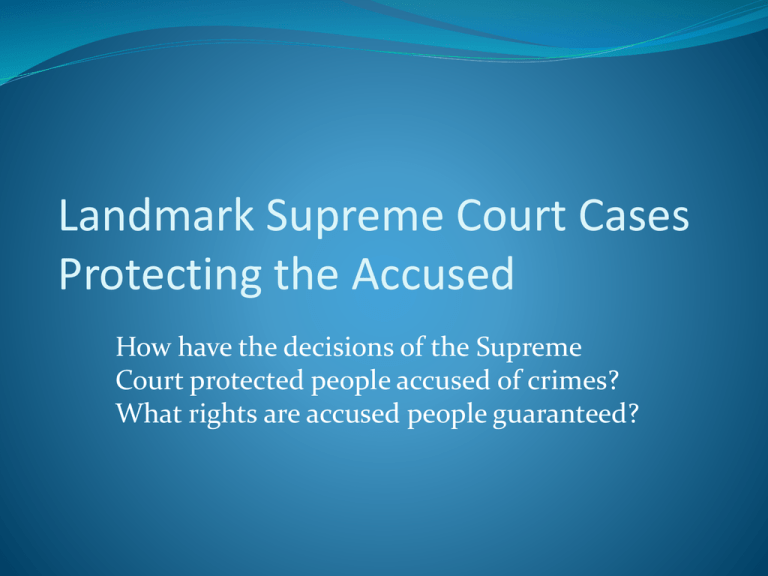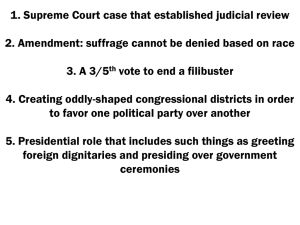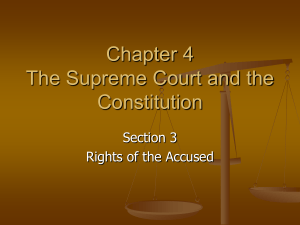Landmark Supreme Court Cases Protecting the Accused
advertisement

Landmark Supreme Court Cases Protecting the Accused How have the decisions of the Supreme Court protected people accused of crimes? What rights are accused people guaranteed? Constitutional Amendments Fourth: no illegal search and seizure. Law enforcement must have a search warrant or probable cause. Fifth Amendment: Rights of the Accused 1. No one can be tried for a felony unless indicted by a grand jury 2. No double jeopardy 3. Protection against self-incrimination 4. Due Process: accused must receive all parts of legal process Sixth Amendment: Rights of People on Trial 1. Trial by jury 2. Speedy and public trial 3. Right to confront witnesses/accusers 4. Right to an attorney Group Assignment Divide into 4 equal groups You will be assigned a specific Supreme Court case and you will become an expert on this case. You are to create a presentation to teach your classmates about these cases. Be sure to include: A brief overview of the case (Who, What, Where, When, Why) What constitutional right was being questioned? What was the ruling? Votes for and against. Who wrote the majority opinion, the dissenting opinion? Was the ruling based on a precedent or did it set a new precedent? What was the precedent? At least one picture Two multiple choice questions to ask the class Cases Mapp v. Ohio (1961): Mapp was arrested for possessing pornography found in an illegal search. - Illegally obtained evidence cannot be used in a trial. “Exclusionary rule” established. Gideon v. Wainwright (1963): Gideon arrested for robbery. He asks for a lawyer but the court refuses to provide one. - If a defendant cannot afford a lawyer, the state must provide one for them. More Cases Miranda v. Arizona (1966): Miranda was arrested for rape and murder and confessed to the crime before being advised of his rights. - Accused criminals must be informed of their rights when arrested In re Gault (1966): Gerald Gault (15) was convicted of making an obscene phone call and sentenced to 5 years in a juvenile detention facility. - Juveniles must be afforded the same rights as adults, including: notifying parents, right to counsel, right to confront accusers, and protection against self-incrimination.











